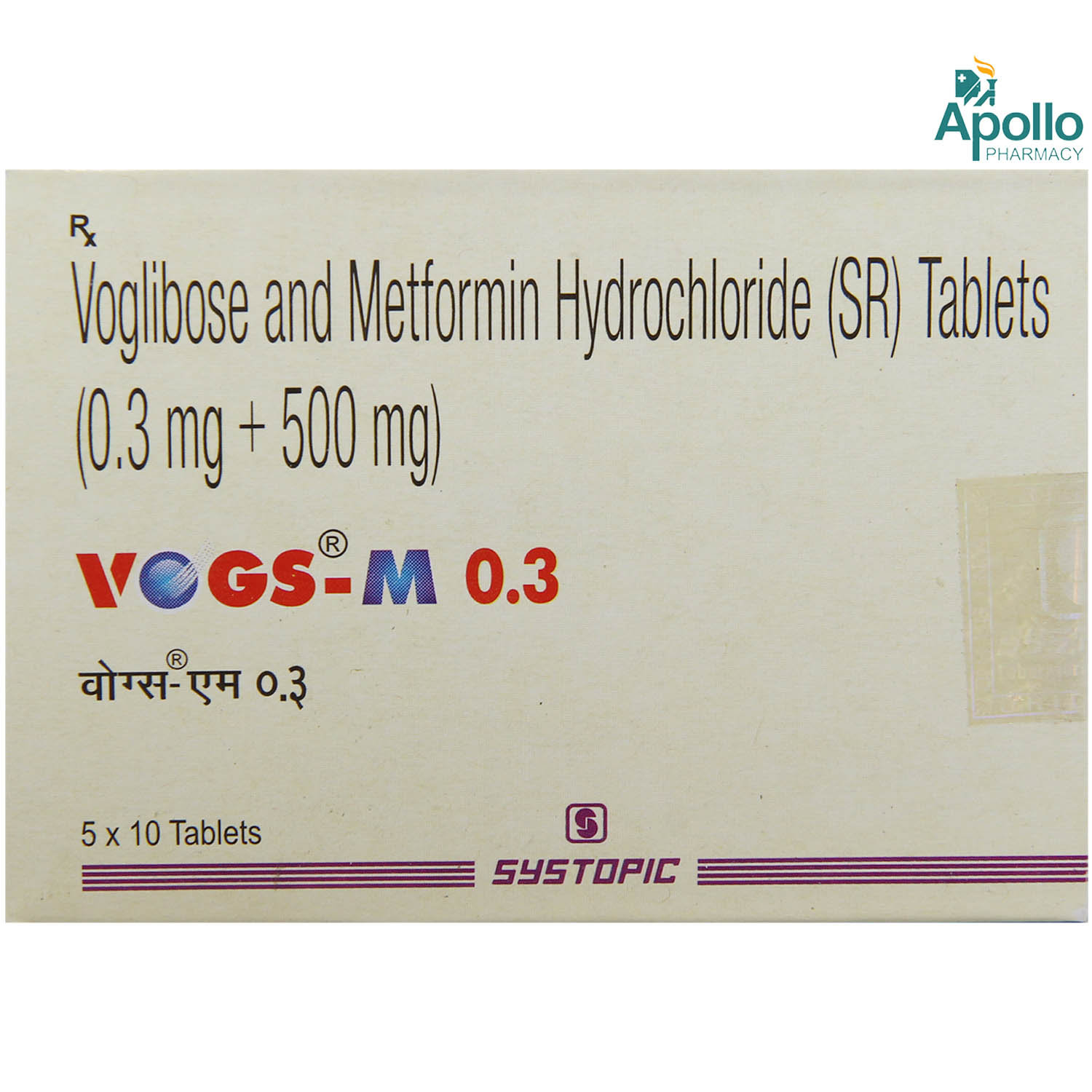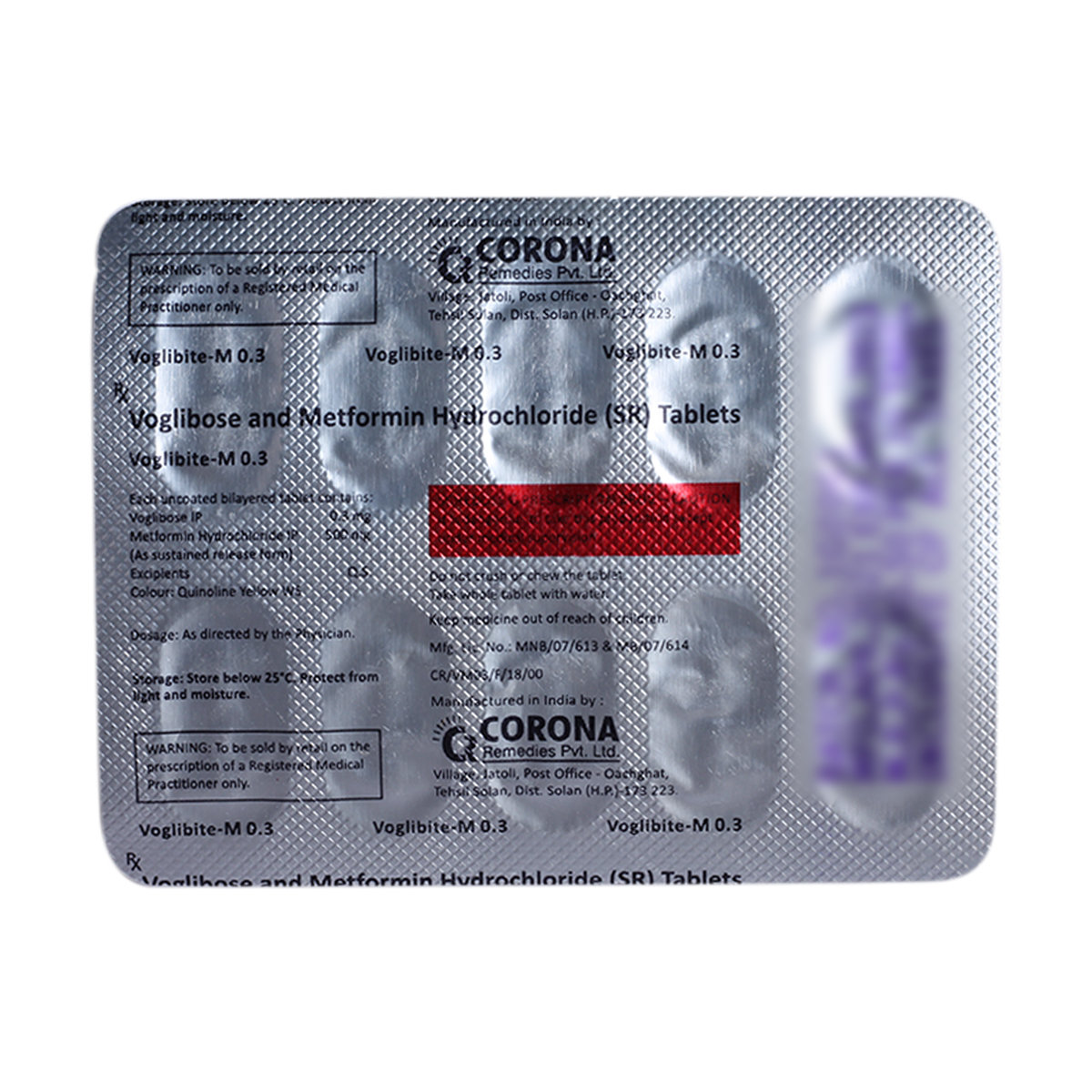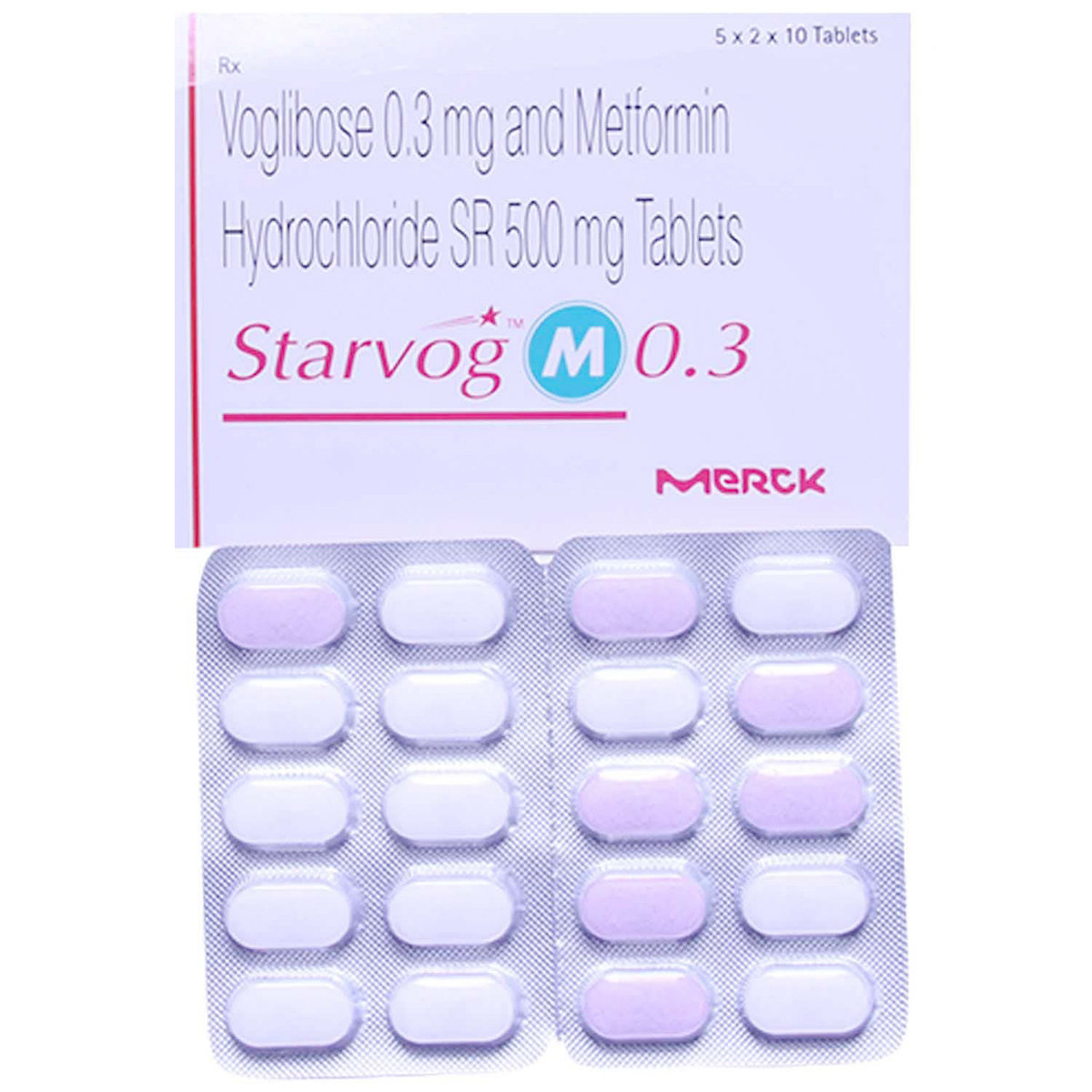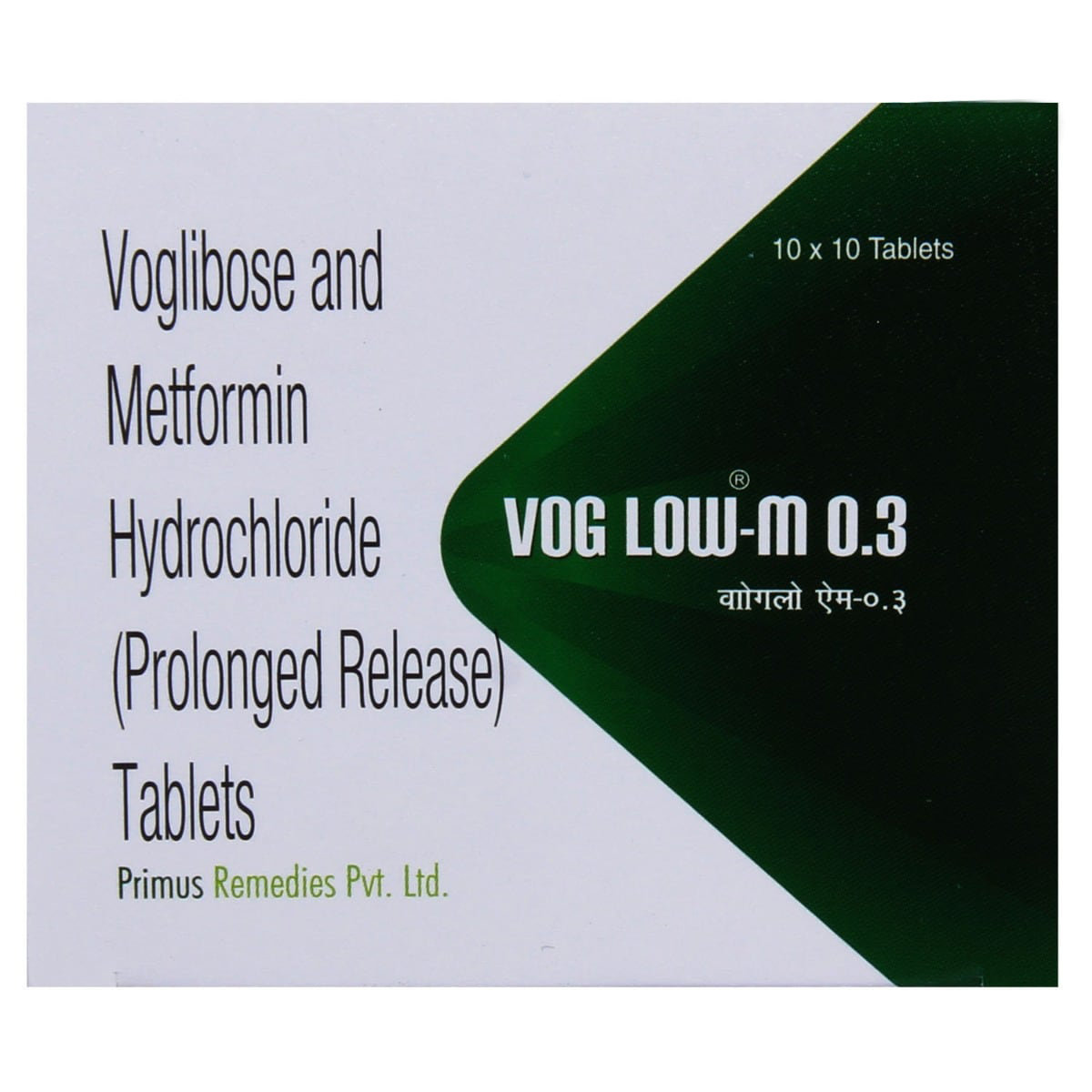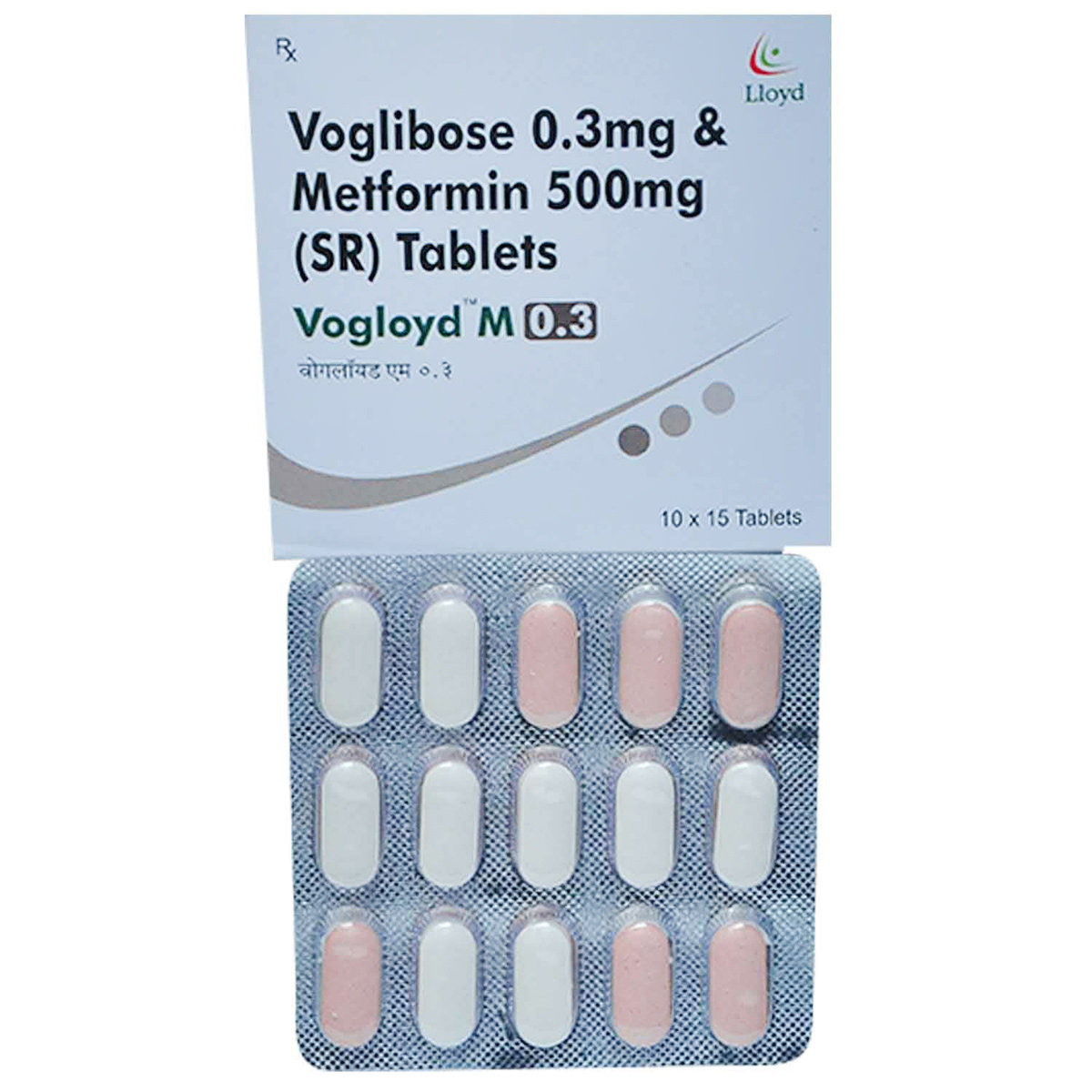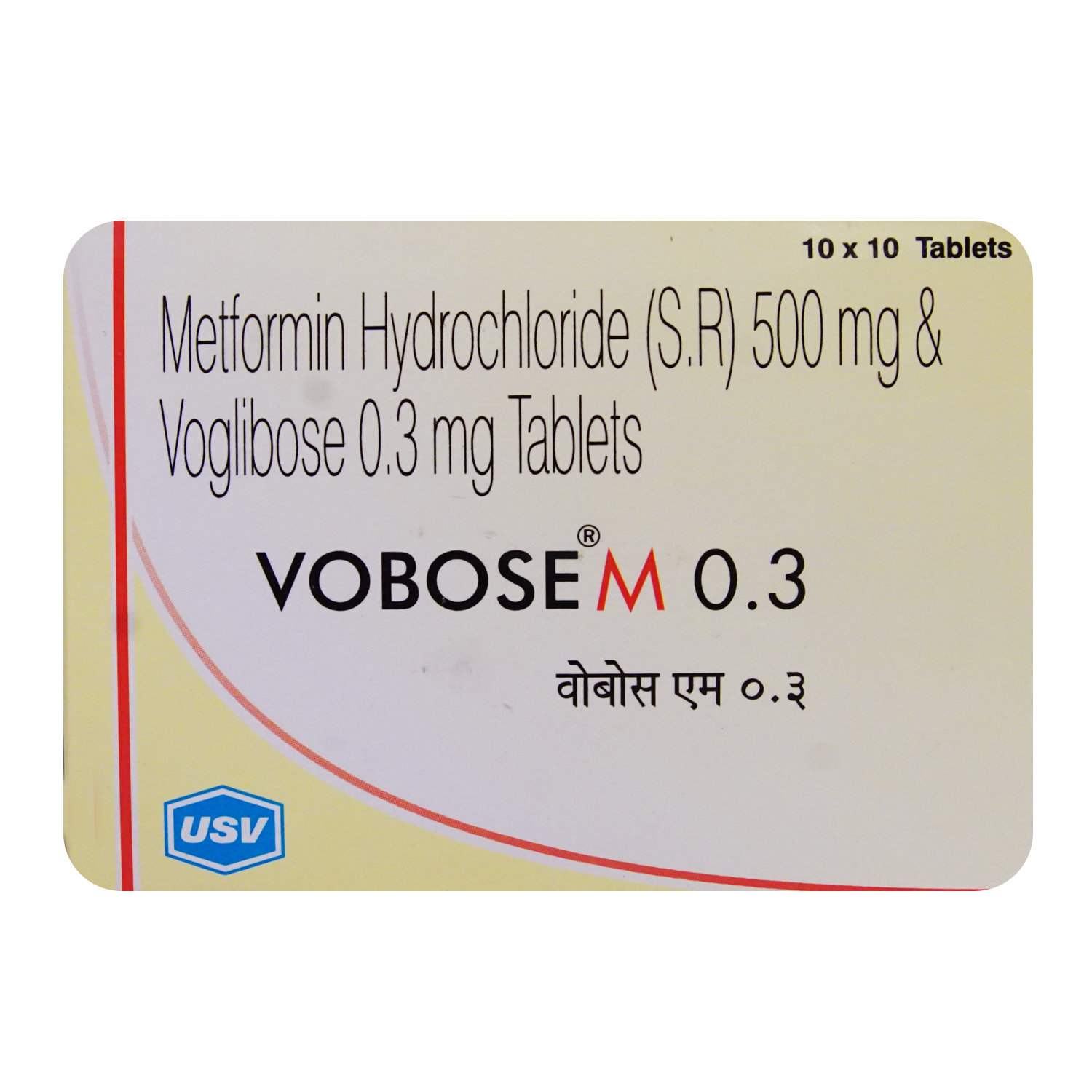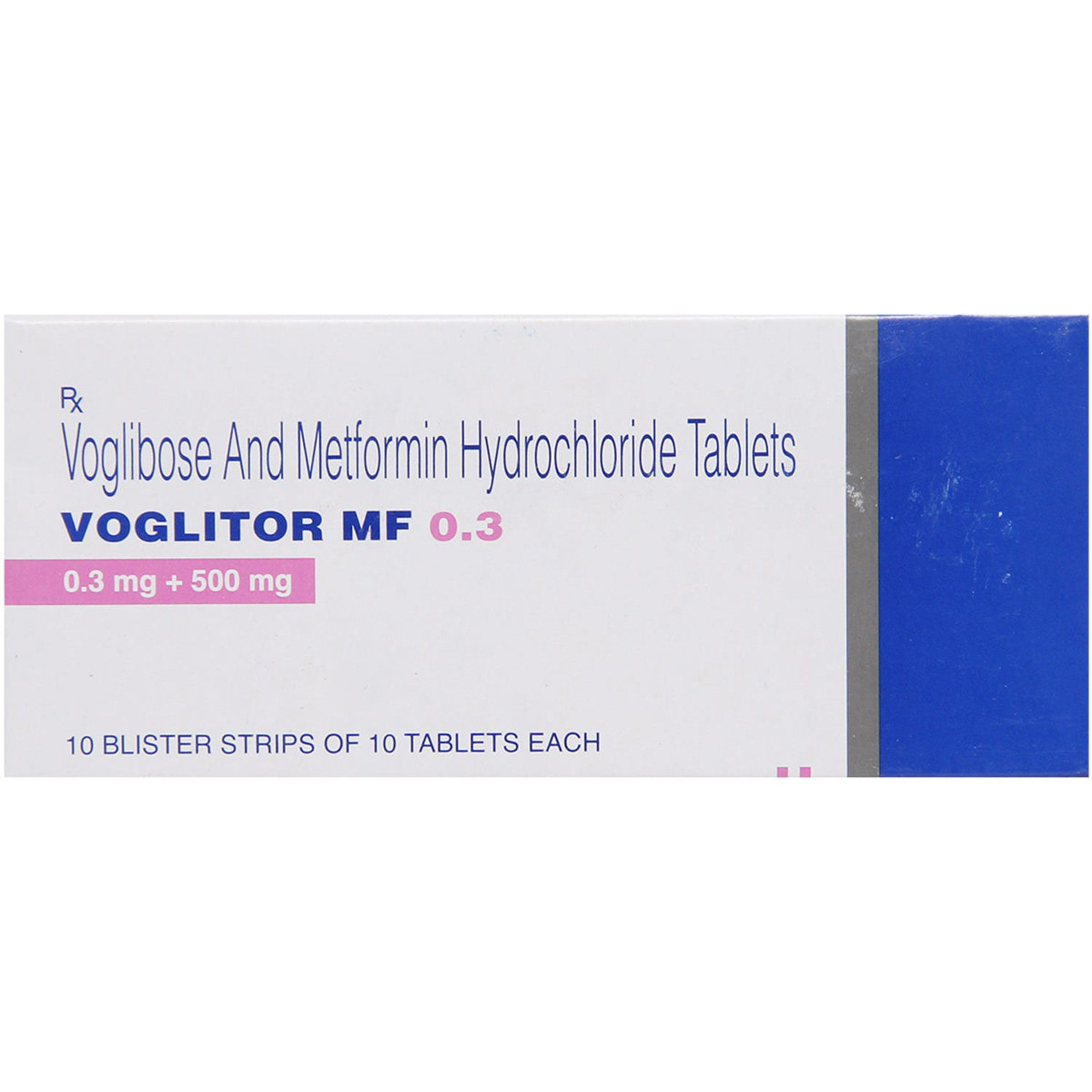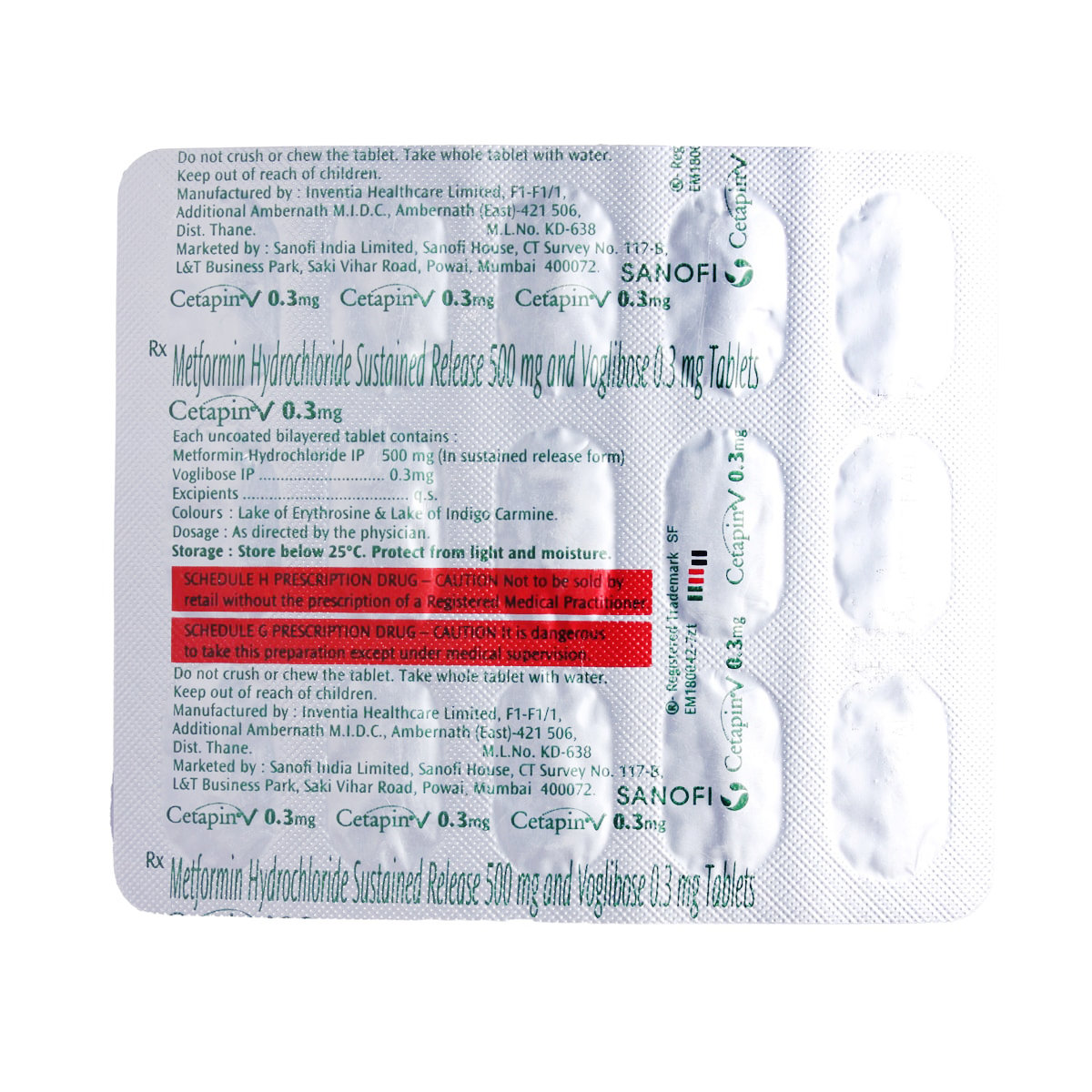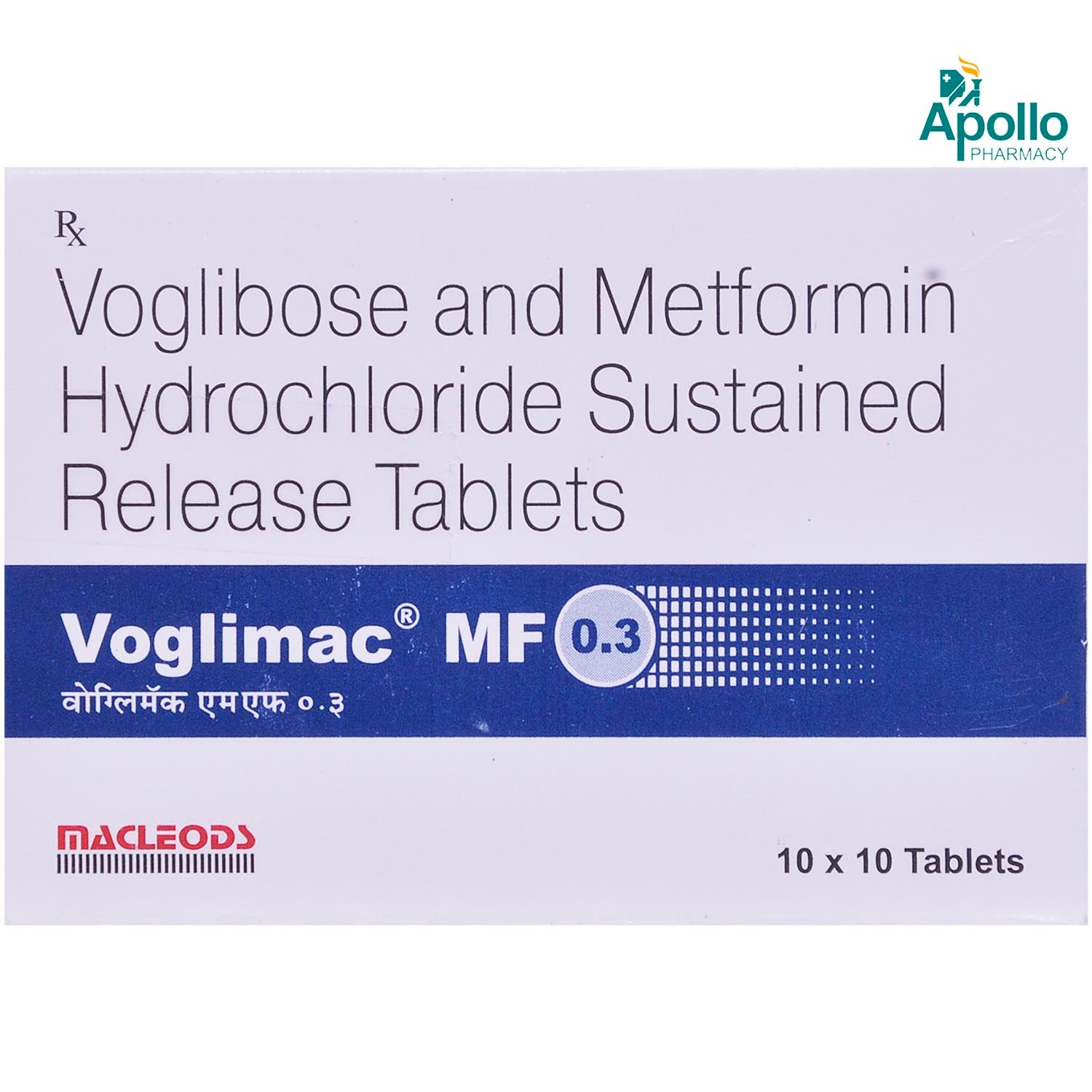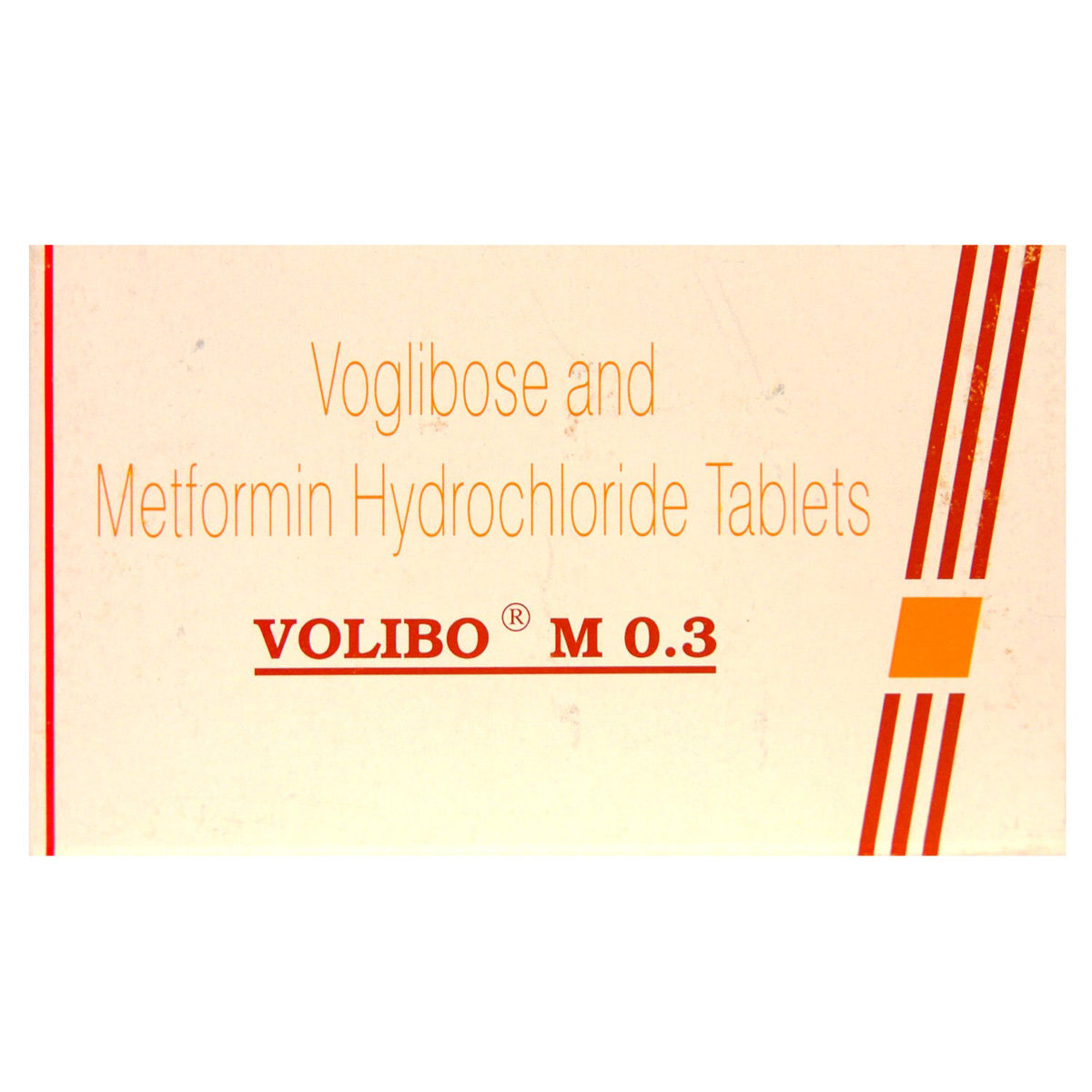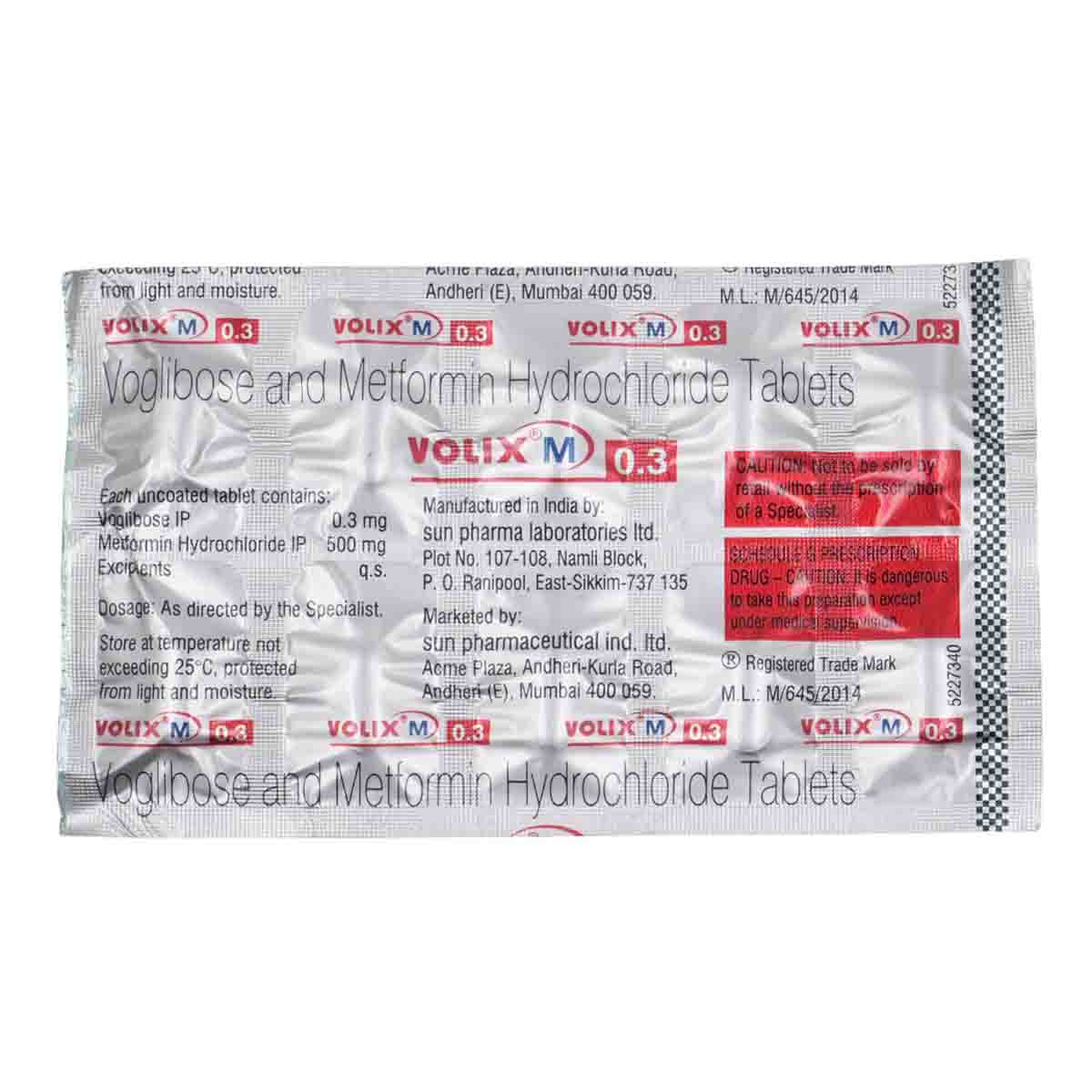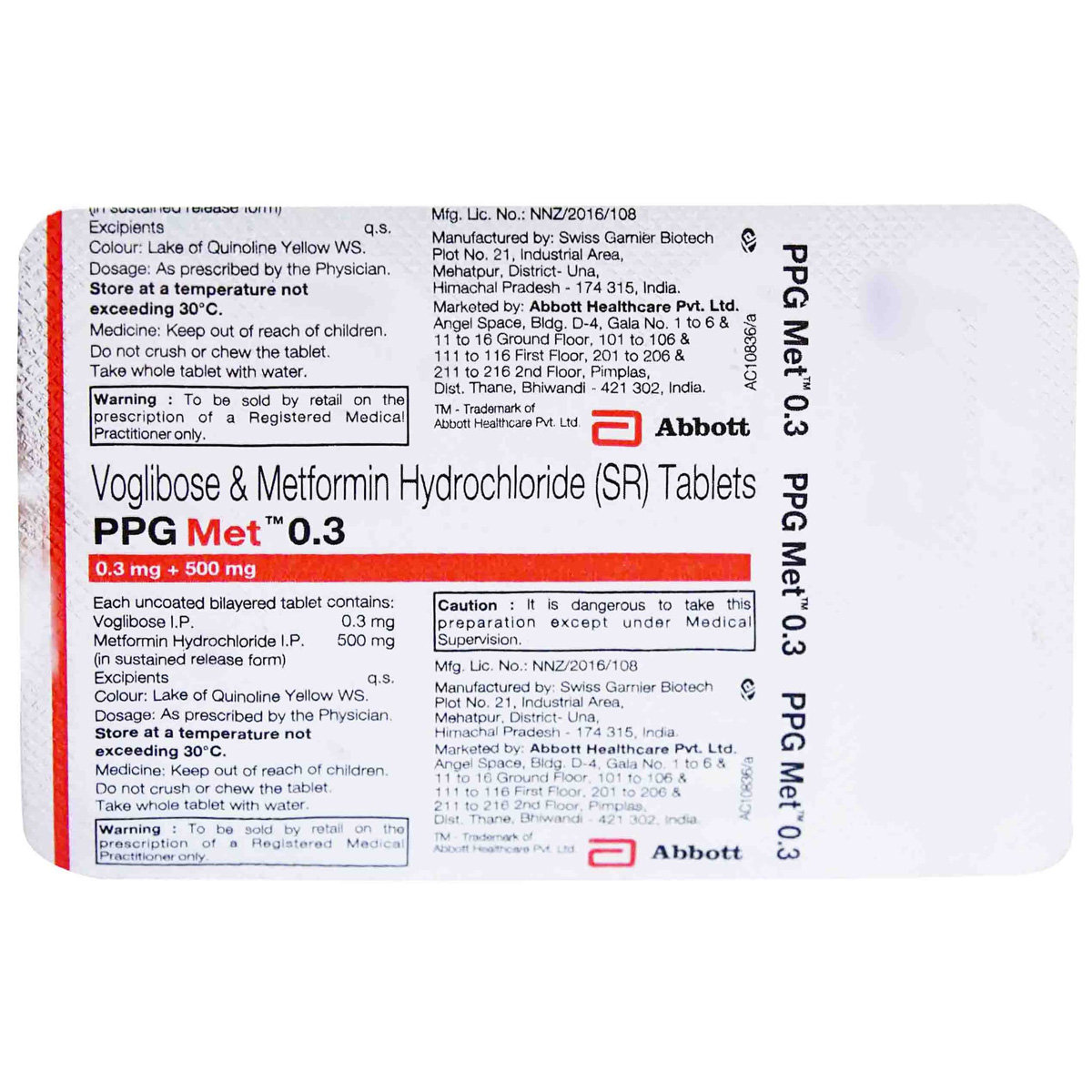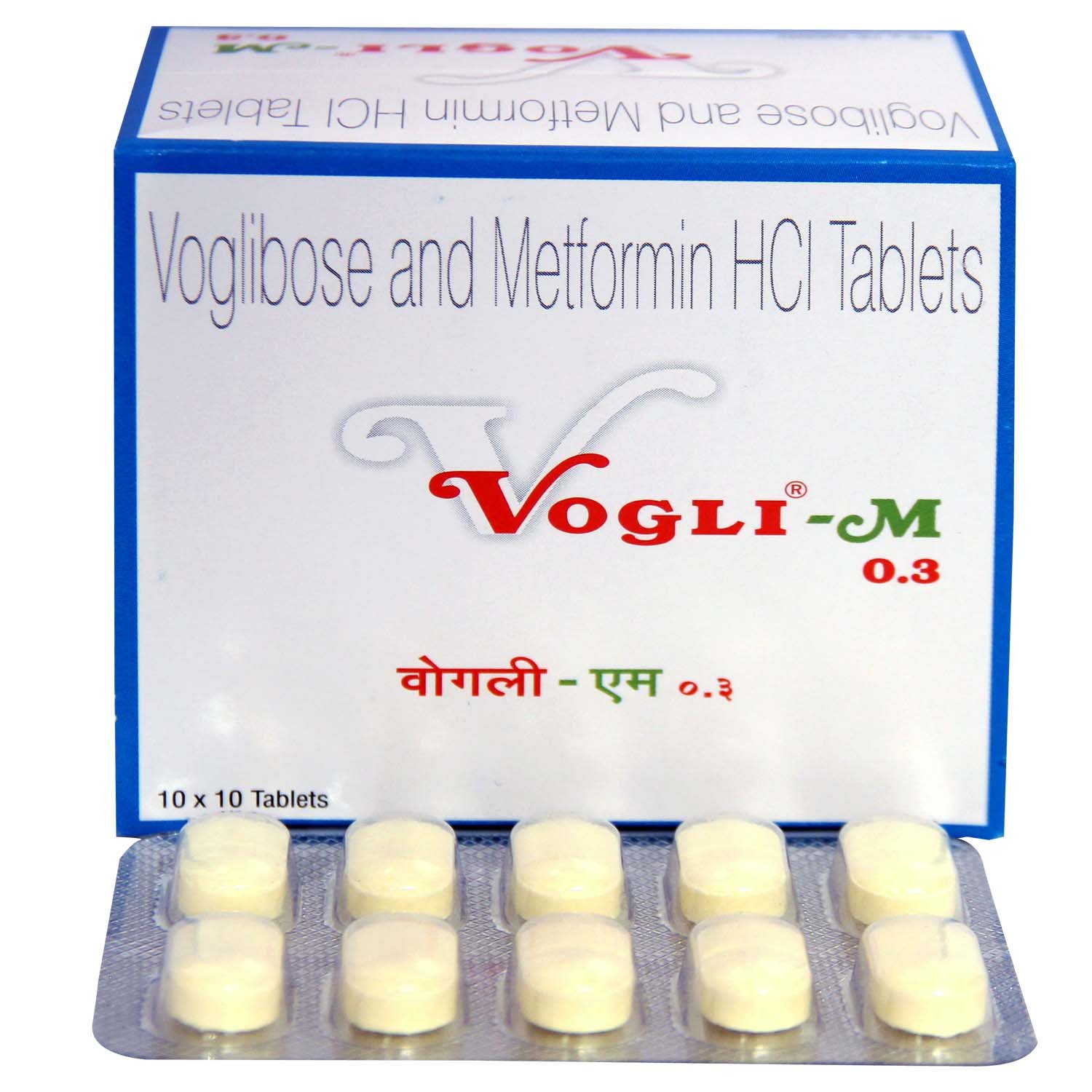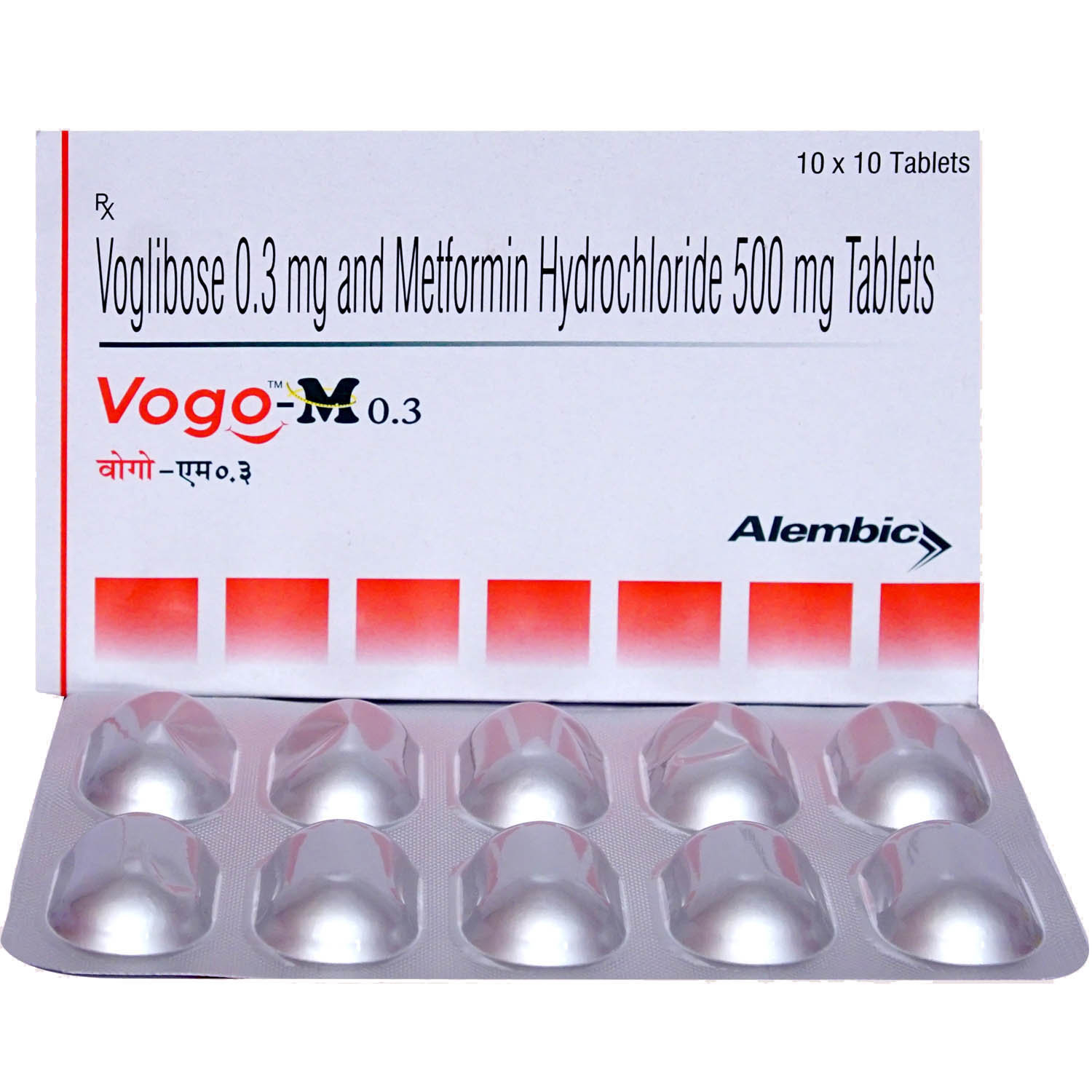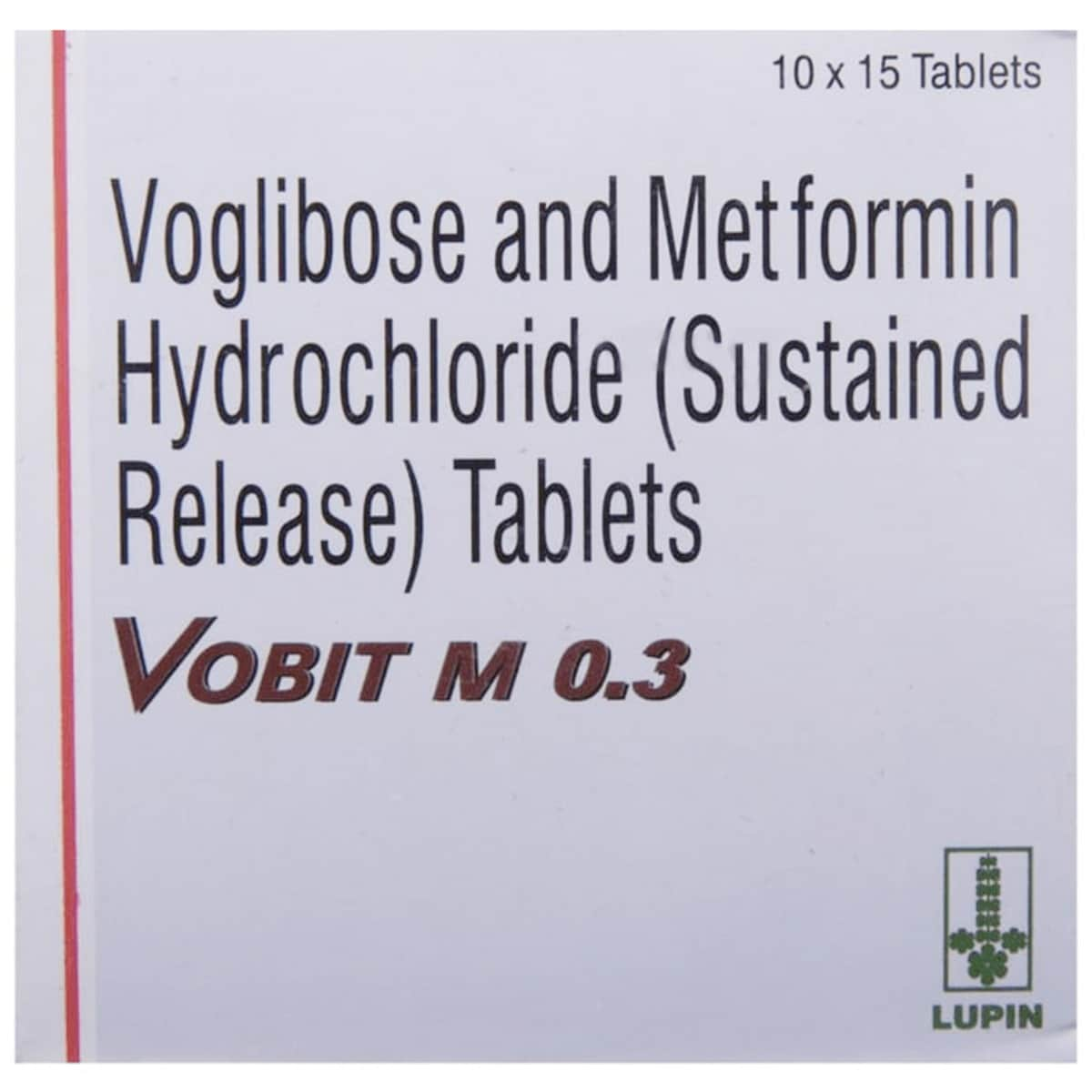Nirvog-M 0.3 mg Tablet 10's
MRP ₹85
(Inclusive of all Taxes)
₹12.8 Cashback (15%)
Provide Delivery Location
Online payment accepted
 Prescription drug
Prescription drugWhats That
Composition :
Manufacturer/Marketer :
Consume Type :
Expires on or after :
Return Policy :
About Nirvog-M 0.3 mg Tablet
Nirvog-M 0.3 mg Tablet belongs to the class of anti-diabetic drugs. It is used in the treatment of type 2 diabetes mellitus. Diabetes mellitus is a metabolic disease that causes high blood sugar levels. It occurs when the insulin (a hormone produced by the beta cells of the pancreas) is resistant in breaking the glucose to produce energy (insulin resistance) or the pancreas (an organ behind the stomach) produces little or no insulin at all.
Nirvog-M 0.3 mg Tablet is composed of two medicines, namely Voglibose and Metformin. Voglibose belongs to the class of alpha-glucosidase inhibitors. It acts by inhibiting the intestinal enzymes, which break complex sugars into simple sugars such as glucose. This process prevents the rise of blood glucose levels. Metformin belongs to the class of biguanides and exhibits non-pancreatic effect to reduce serum glucose levels without increasing insulin secretion. It is also known as an insulin sensitizer as it increases the effects of insulin. Metformin is considered to be a unique anti-diabetic drug since it does not cause hypoglycemia (lowered blood sugar levels).
Take Nirvog-M 0.3 mg Tablet with food at regular intervals as prescribed by your doctor. Your doctor will decide the dosage form, and this may change timely depending on your blood sugar levels. The common side effects of Nirvog-M 0.3 mg Tablet include nausea, vomiting, changes in taste, diarrhoea, dizziness, stomach pain, shortness of breath, skin rash, bloating, and flatulence (intestinal wind/gas). Although not everyone experiences these side effects, if they occur, seek medical attention. Lactic acidosis, is a rare, but serious metabolic complication of excess lactic acid in the blood that is caused by metformin accumulation is reported. The risk of lactic acidosis is high in people with kidney, liver, and heart diseases.
Before starting Nirvog-M 0.3 mg Tablet , let your doctor know if you have any medical history of anaemia (low hemoglobin levels), seizures (fits), heart, kidney, and liver diseases. Nirvog-M 0.3 mg Tablet does not cause hypoglycemia (low blood sugar levels). However, when used with other diabetic drugs like insulin or sulfonylureas, it can lead to hypoglycemia. Also, speak to your doctor if you are on restricted food or fluid intake since Nirvog-M 0.3 mg Tablet causes dehydration, low blood sugar, and kidney damage. Do not take Nirvog-M 0.3 mg Tablet if you have gastrointestinal diseases like ulcerative colitis or Crohn’s disease. Do not take or stop Nirvog-M 0.3 mg Tablet , if the doctor did not advise you to do so.
Uses of Nirvog-M 0.3 mg Tablet
Directions for Use
Key Benefits
Nirvog-M 0.3 mg Tablet is used to treat type 2 diabetes mellitus. It is a combination of Voglibose and Metformin. Voglibose belongs to the class of alpha-glucosidase inhibitors. It delays glucose absorption by inhibiting the intestinal enzymes, which break complex sugars into simple sugars such as glucose. This process prevents the rise of blood glucose levels immediately after meals. Metformin belongs to the class of biguanides. It shows the non-pancreatic effect to reduce serum glucose levels without increasing insulin secretion. It is also known as an insulin sensitizer as it increases the effects of insulin. It is considered to be a unique anti-diabetic drug since it does not lower blood sugar levels. Metformin does not cause weight gain in most cases.
Storage
Drug Warnings
Nirvog-M 0.3 mg Tablet may increase the risk of cardiovascular diseases and hypoglycemic conditions in renal and liver disease patients. It can cause pneumatosis intestinalis (gas-filled cysts on the bowel wall) when used along with other alpha-gastrointestinal drugs. It is advised to monitor the gastrointestinal side effects thoroughly to rule out the possibility of pneumatosis intestinalis. Nirvog-M 0.3 mg Tablet has an increased risk of lactic acidosis (a rare, but serious metabolic complication of excess lactic acid in the blood that is caused by metformin accumulation). The risk of lactic acidosis is high in older people with kidney, liver, and heart diseases. Hence, brief your medical history and take advice from your doctor before starting Nirvog-M 0.3 mg Tablet . Avoid consuming excessive alcohol as it can potentiate lactic acidosis.
Diet & Lifestyle Advise
- Maintain a fiber-rich diet and include healthy carbohydrates from fruits, vegetables and whole grains to maintain your blood glucose levels.
- Eat at regular intervals
- Keep a check on your weight and exercise regularly to keep your heart healthy.
- Your doctor also guides you on how to notice and manage the early symptoms of high/low blood sugar levels.
- Gastrointestinal side effects can be managed with simple modifications in your lifestyle. These include cutting down on sugars and fatty foods, and avoiding carbonated drinks and foods that cause gas.
Side Effects of Nirvog-M 0.3 mg Tablet
Common side effects:
- Nausea
- Vomiting
- Changes in taste
- Diarrhoea
- Dizziness
- Stomach pain
- Shortness of breath
- Skin rash
- Bloating
- Flatulence (intestinal wind/gas)
Rare side effects:
- Lactic acidosis
Habit Forming
Therapeutic Class
All Substitutes & Brand Comparisons
RX
Vogs M 0.3 Tablet 10's
Systopic Laboratories Pvt Ltd
₹78.5
(₹7.07 per unit)
7% CHEAPERRX
Voglibite M 0.3 Tablet 10's
Corona Remedies Pvt Ltd
₹100
(₹9.0 per unit)
17% COSTLIERRX
Starvog M 0.3 Tablet 10's
Merck Ltd
₹114.5
(₹10.31 per unit)
34% COSTLIER
Author Details
We provide you with authentic, trustworthy and relevant information
FAQs
Drug-Drug Interactions Checker List
- SELEGILINE
- PREDNISOLONE
- PHENYLBUTAZONE
- METOLAZONE
- HYDROCHLOROTHIAZIDE
- METOPROLOL
- PROPRANOLOL
- ISOCARBOXAZID
- PHENELZINE
- CHLOROTHIAZIDE
Special Advise
Regular blood tests are recommended while taking Nirvog-M 0.3 mg Tablet to monitor blood sugar levels.
Disease/Condition Glossary
Diabetes Mellitus type 2 is a condition in which either the body stops producing enough insulin (the hormone which helps to decrease sugar levels in the blood) or there is resistance to the action of insulin. As a result, excessive insulin is produced but it fails to act on the organs of the body. Symptoms of type 2 diabetes include feeling exhausted all time, feeling thirsty, having blurry vision, and the urge to urinate (pee) more often. Complications of type 2 diabetes include skin infection, eye problems (retinopathy), nerve damage (neuropathy), delayed wound healing, diabetic foot (foot ulcer), kidney disease (nephropathy), high blood pressure, and even stroke. Both low and high blood sugar levels can be dangerous and should be treated as soon as possible. Your H1bA1C below 5.7% is normal, 5.7-6.4% confirms the prediabetes stage, and 6.5% or greater states diabetes condition.

Have a query?
Alcohol
Safe if prescribed
It is unsafe to consume alcohol since it may worsen the side effects.
Pregnancy
Consult your doctor
Please consult your doctor before starting Nirvog-M 0.3 mg Tablet if you are pregnant or planning to conceive.
Breast Feeding
Consult your doctor
There is no sufficient data on how Nirvog-M 0.3 mg Tablet affects breastfeeding. It is safe to seek medical advice before you start Nirvog-M 0.3 mg Tablet if you are lactating.
Driving
Safe if prescribed
Your driving ability may be affected if your blood sugar levels are too high or too low. Do not drive or operate machinery if you also experience dizziness or drowsiness.
Liver
Consult your doctor
Let your doctor know if you have any history of liver diseases or hepatic impairment when you are prescribed Nirvog-M 0.3 mg Tablet .
Kidney
Consult your doctor
Let your doctor know if you have any history of kidney diseases when you are prescribed Nirvog-M 0.3 mg Tablet .
Children
Safe if prescribed
Please seek advice from a doctor before giving Nirvog-M 0.3 mg Tablet to a child.




